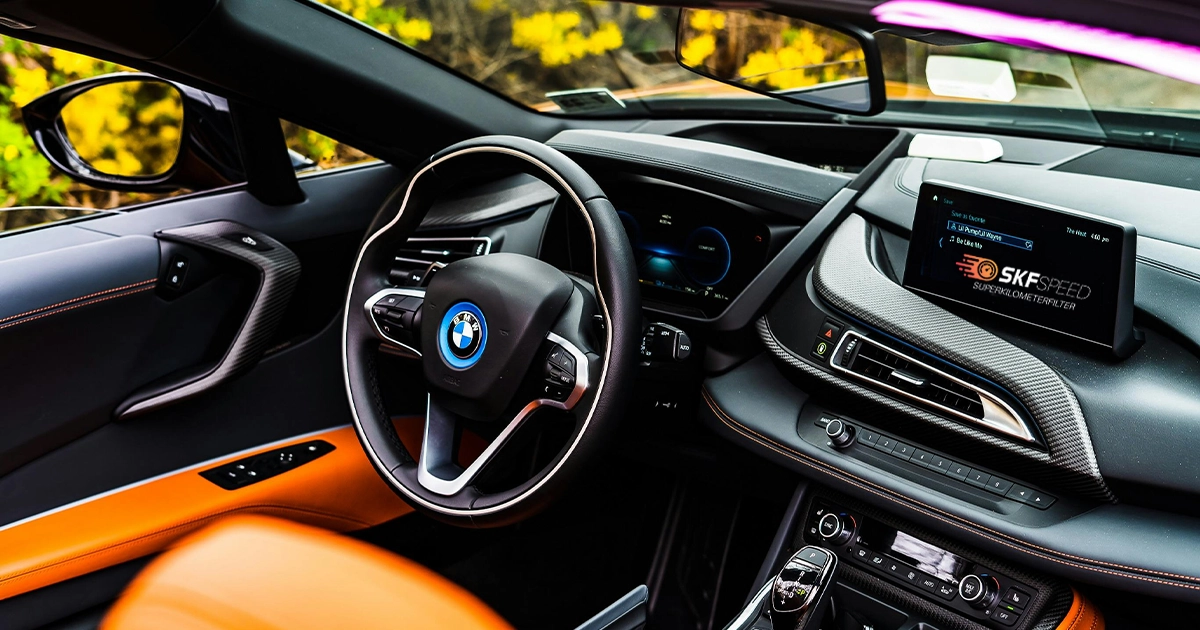
If you search online for methods showing how to improve your gas mileage, you will come across multiple solutions. However, they fail to describe the main factors that you have to take into consideration. These suggestions will help you to determine the best course of action, whether you intend to buy a new car or make necessary modifications to your current vehicle. Here are the main factors that will give you an idea of how to improve your gas mileage.
Have you ever seen a car that is fuel-efficient, can withstand high loads, and is convenient for family trips? Such cars don’t exist because they belong to entirely different categories, depending on the purpose they serve. Even manufacturers have one of these criteria in mind while creating a new car.
We can categorize vehicles into three main categories: cars (including sedans, coupes, hatchbacks, station wagons, minivans, and convertibles), SUVs, and trucks. Nowadays, there are many cross-overs that cannot be categorized solely under one of these categories. However, to make a comparison, we will neglect such abnormalities for now.
Cars are mostly built on passenger car chassis and tend to be more fuel-efficient than SUVs, which, in most cases, are built on truck chassis. In some cases, Minivans will have almost the same features as SUVs. SUVs mostly have at least 5 mpg lower fuel consumption and will not be convenient for those who are willing to sacrifice everything for good fuel efficiency. Trucks are designed for high-load transportation, and it is understandable why their fuel consumption is not comparable to that of other types of automobiles. Even though you may know the tricks on how to increase mpg, the comparison still will be pointless.
When manufacturers create a car, they already have in mind whether it will be a sports car, an off-road vehicle, or a car for everyday use. The purpose of the car determines the size of the engine that it requires. As you may have guessed, sports cars and off-road cars require a significantly stronger engine. Even though they will thrive in such situations, they will also have significantly low fuel efficiency.
How to get better gas mileage? As you have seen, sports cars are just meant to have low mpg. You may try to drive calmly, but this still will not give as good mpg as other types of cars have. Replacing some parts with low-performance ones will definitely improve the results, but it doesn’t make sense, as we will go against the notion of a sports car.
On the other hand, ordinary cars that are meant for everyday driving have an engine size that is only required. Even though they might not be useful for speedy driving, they serve their purpose brilliantly. However, you have to take into account that pushing your car to exceed its limits will cause extremely low MPG and will put too much stress on your car. If you have a modest automobile and frequently use it for speedy or off-road driving, you may have worse fuel efficiency than other cars with higher engine sizes.
Some people replace the engine to reset the odometer without thinking about fuel efficiency. If you upgrade your motor, the chances are you’ll increase gas consumption. So, if you’re considering an engine replacement, don’t forget to factor in gas mileage.
If you compare the mpg of two identical cars, you will notice that they will not show identical results. Prompt acceleration, extremely slow driving, and many other factors will determine the fuel efficiency of your automobile. If you often get into traffic congestion, you will be aware that starting and stopping a car consumes much more gasoline than steady driving around the city. Hence, the way you drive your “best friend” will affect your monthly expenses for petrol.
As you may have guessed, the answer to the question of how to increase gas mileage becomes much more straightforward. You may just need to adjust your driving habits, and the problem will be resolved.
Manual transmission engines are less complex than automatics. Similarly, they have more gears and weigh significantly less. All these factors significantly affect fuel consumption. A manual transmission not only gives you more control over your car but also consumes significantly less gasoline compared to an automatic transmission.
Mechanically, we are always triggered to find the easiest solution. Hence, we sometimes favor automatic transmission. However, making such a decision becomes permanent, as you cannot simply buy aftermarket parts and change from an automatic to a manual transmission at will. Many car owners have the skills to change the air filter or any other component that doesn’t require the interference of the technician, but there are some factors that you cannot change after making a buying decision.
Have you noticed how the performance of your car deteriorates as you allow more people to sit there? That is because of the weight of your passengers. When the manufacturer determines the engine and size, they take into account the weight of the automobile. Carmakers make sure that the vehicles that they produce are as lightweight as possible, but they cannot take into account possible manual adjustments that the owner can make.
If you would like to enhance the appearance of your car, you can make it a widebody or add additional parts to improve its look. However, this will make your “best buddy” less fuel-efficient. Similarly, ensure that you remove any unnecessary weight from your automobile. Even if they seem weightless together, they will still impact gasoline consumption. This will also put more stress on the engine, affecting its overall performance.
This may be the easiest solution when you ask yourself how to increase car mileage. Simply keep your car as lightweight as possible, and you will be able to save money on fuel efficiency.
A 4-wheel drive (4WD) is also known as 4×4 and implies that the car supplies torque to both axles. This allows the owner to have better friction, which is vital for off-road driving or many other purposes. On the other hand, most cars are 2-wheel driven (2WD). For city dwellers, it is the most convenient option.
As you may have already guessed, 4WD means extra weight and more mechanical friction and is less fuel-efficient. Owning such a car may seem unnecessary if you mainly use it on good-quality roads. Similarly, 2WD doesn’t mean that it will be useless outside the city. Based on the specific characteristics of your car, it can even outperform many 4x4s in certain conditions.
As you know, the condition of the car deteriorates depending on the time of its exploitation. Even seemingly insignificant factors may have a significant impact on fuel efficiency. Hence, it is always advisable to take it to a technician from time to time, especially if you notice something suspicious.
No one likes visiting a technician, especially for small issues. However, if you take into account the extra costs that you may have to pay for gasoline, it is worth the struggle. Similarly, being proactive always pays off as such problems can always develop into something more detrimental.
Not only will you improve fuel efficiency with regular maintenance, but you’ll also increase the lifespan of your car with proper car care.
Regularly testing your car can also help you detect minor problems before they become major issues. There is a better alternative. You can use the mileage blocker to test the functionalities of your car. Even though t has easy installation instructions, it’s important to purchase mileage blocker from Superkilometerfilter. You can always look through the support page or contact the customer center.
Do you think bigger tires look much better on your car? if you do, you may have to consider extra costs associated with such enhancement. The tire size has a significant influence not only on the car’s mileage but also on its fuel efficiency. The bigger tires have more weight and generate more friction and more aerodynamic drag. Hence, they cause worse fuel efficiency in your car, which will differ from case to case.
Let’s look at the statistics that clearly indicate why this factor is so important. According to Autolist, most cars achieve at least 5 mpg more when driving on a highway than on city roads. Similarly, roads that require prompt maintenance will also decrease your mpg and significantly affect your monthly fuel consumption.
For example, consider the 2017 Mustang GT. It is quite fuel-efficient in its category, achieving 25 mpg on the highway but only 15 mpg in the city. As you can see, the difference is quite noticeable, but it will vary from car to car. If you consider buying a car take the road condition of your area into account.
Have you ever noticed that sometimes your car runs out of gasoline much faster? Despite all the other factors that we have discussed above, the petrol station you use might be an issue. Fuel quality significantly affects the performance of your car, its health, and, above all the fuel efficiency. To understand the reasons, we must know what octane means.
Octane rating is a measurement that determines the petrol’s ability to withstand compression before detonating. A higher octane number means that the car can withstand significantly more compression. Octane rating is usually represented by numbers from 1 to 100, but is displayed by names: regular, mid-grade, and premium. However, filling the tank of your automobile with premium gasoline doesn’t truly guarantee premium quality. Some providers may categorize petrol under different categories compared to others. Similarly, such categorization might be exclusive to certain countries. For instance, in the US octane rating of 87 usually means “Regular”, 88-90 “Midgrade”, and 91-94 “Premium”.
A high octane rating will allow you to run your car more efficiently. Hence, paying a premium at a gas station can save you more because of better mpg. However, before we jump to conclusions, we must take into account the recommendations of car manufacturers. Each provider suggests in the manual the optimal octane rating for your specific car model. Using higher octane gasoline than recommended will be a waste of money, as it will not affect fuel efficiency at all.
Do you know a car that is fuel-efficient, comfortable, and super-fast? Aside from Tesla cars that are about to break all the stereotypes, such wonders are unprecedented among solely petrol-fueled automobiles. Currently, scientists are exploring various sources of energy to power cars. However, petrol, diesel, electric, and hybrid cars are the primary categories to which most automobiles belong.
If you are cautious about fuel efficiency, you may need to consider changing your car due to this criterion. For instance, it’s a well-known fact that diesel cars are more fuel-efficient than petrol cars. Similarly, hybrids allow you to use the advantages of a gasoline engine without sacrificing fuel efficiency. Electricity and petrol combinations help to get the best of both worlds. For instance, the Toyota Prius offers outstanding 60 mpg efficiency.
Hybrids run by alternating between a conventional gasoline engine and a supplemental electric engine. This allows achieving, on average, 40-50 mpg. It is also a significantly cleaner option in terms of carbon emissions compared to the best gasoline vehicles that were designed to be environmentally friendly.
How to increase fuel economy? As you have seen the answer to this question depends on multiple factors. You have to make sure that you take into consideration all the factors that make a difference when it comes to fuel efficiency. If these suggestions still don’t solve your fuel efficiency issues, you may have to consider changing your car to a much more fuel-efficient option. To avoid such drastic changes, make sure that you pay close attention to all these factors before purchasing a car.






Here you will find all the details about our company
Here you will find shipping and return related information
Here you will find information on all technical questions
Here you will find helpful information about installation